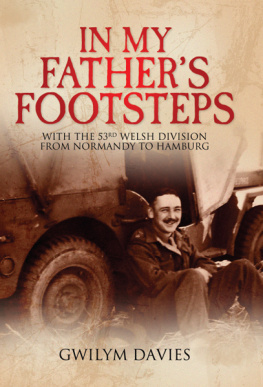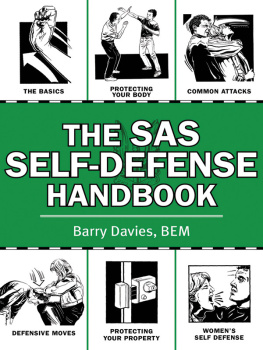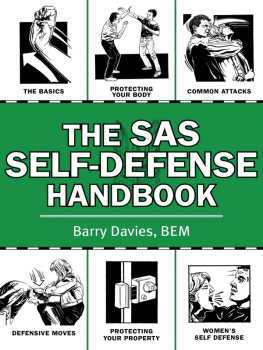This edition published in 2015 by
Pen & Sword Military
An imprint of
Pen & Sword Books Ltd.
47 Church Street
Barnsley
South Yorkshire
S70 2AS
Copyright Coda Publishing Ltd. 2015.
Published under licence by Pen & Sword Books Ltd.
ISBN: 9781473833548
PDF ISBN: 9781473866904
EPUB ISBN: 9781473866898
PRC ISBN: 9781473866881
A CIP catalogue record for this book is available from the British Library.
All rights reserved. No part of this book may be reproduced or transmitted in any form or by any means, electronic or mechanical including photocopying, recording or by any information storage and retrieval system, without permission from the Publisher in writing.
Printed and bound in England
By CPI Group (UK) Ltd., Croydon, CR0 4YY
Pen & Sword Books Ltd. incorporates the imprints of Pen & Sword Aviation, Pen & Sword Family History, Pen & Sword Maritime, Pen & Sword Military, Pen & Sword Discovery, Pen & Sword Politics, Pen & Sword Atlas, Pen & Sword Archaeology, Wharncliffe Local History, Wharncliffe True Crime, Wharncliffe Transport, Pen & Sword Select, Pen & Sword Military Classics, Leo Cooper, The Praetorian Press, Claymore Press, Remember When, Seaforth Publishing and Frontline Publishing
For a complete list of Pen & Sword titles please contact
PEN & SWORD BOOKS LIMITED
47 Church Street, Barnsley, South Yorkshire, S70 2AS, England
E-mail:
Website: www.pen-and-sword.co.uk
CONTENTS
CHAPTER I
IN MY FATHERS FOOTSTEPS
CHAPTER II
LANDING IN NORMANDY
CHAPTER III
THE NORMANDY BATTLES
CHAPTER IV
THE ODON VALLEY BATTLES
CHAPTER V
THE FALAISE POCKET
CHAPTER VI
THE ADVANCE TO HOLLAND
CHAPTER VII
THE BATTLE FOR S-HERTOGENBOSCH
CHAPTER VIII
THE ONSET OF WINTER
CHAPTER IX
THE ARDENNES - THE BATTLE OF THE BULGE
CHAPTER X
THE REICHSWALD FOREST - OPERATION VERITABLE
CHAPTER XI
THE RHINE CROSSING - OPERATION PLUNDER
CHAPTER XII
THE FINAL PUSH
INTRODUCTION
M
y father was called up for service in August 1941. His twentieth birthday was still a couple of weeks away, and he had to put his study for a degree in metallurgy at Swansea University on hold. His first three years in the army were spent training or on active service in various parts of the UK, including a spell with 117 Heavy Anti-aircraft Regiment serving on 4.5 inch antiaircraft guns deployed in defence of Scapa Flow. In 1942, he attended a War Office Selection Board and was passed fit for Officer training. He went on to eventually serve as a Captain in the Royal Artillery as part of the 53rd (Welsh) Division. He was Troop Leader of F Troop, 497 Battery of 133 Field Regiment. Their weaponry consisted of the famed 25-pounder, possibly the most important artillery piece of the Allied Forces in World War II. From late June 1944, to the eventual surrender of the German Armed Forces at Luneberg in May 1945, the 53rd Welsh saw almost continual action as they fought their way through Northern France, Belgium and Holland, before entering Germany in the spring of 1945. In the course of just ten months, as they criss-crossed France, Belgium, Holland and Germany, the Division covered over 1,900 miles, and went through more than 1.3 million rounds of 25-pounder shells. The 53rd suffered 9,849 casualties, officers and men, killed, wounded and missing. On the plus side, they captured 35,000 enemy troops along the way, and a further 40,000 at the end of the war in Hamburg.
Shortly before he passed away in 2005, I discovered among his papers, a manuscript of my fathers war diaries recounting his memories of the Second World War. They run from the time he was called up in 1941 through to the end of the war, which in his case was near Hamburg. I believe they were written towards the end of the 1990s. Im pleased to say his decision to put pen to paper was inspired by a book I gave him entitled The History of the 53rd Welsh Division in the Second World War, by Brigadier C N Barclay, C.B.E., D.S.O.
Like many World War II veterans, he spoke little of his active service, although in later years, he did confide in me about certain memories. His brother, who served as a Captain in the Royal Navy told me that my fathers war action had been brutal at times, and having spent many months researching the role of the 53rd Welsh Division and the 133rd Field Regiment in particular, I can now understand what he meant.
When I was much younger, my father took the family on a journey around Europe, and we visited many of the towns and cities you will read of in this book. As a small boy, I could not really understand the significance some of these places held in my fathers memory, although I very much can now. I can still picture certain of the places we visited such as the beaches at Arromanches, the streets of Antwerp, the mountains and forests of the Ardennes and the row upon row of gleaming white tombstones at the military cemeteries at Arnhem and Nijmegen. My journey back through these places this year, with my knowledge of the role of the 53rd (Welsh) Division in 1944-45 has brought my fathers diaries into sobering context.
I am fortunate that my father also left us a photograph album, which I have used to help illustrate this book, and which gives us an invaluable vision of life at the front. Copies of these images have been passed to the museums of the Royal Artillery and the Royal Welsh Regiment. Included in this album are a few photographs from the camera of a deceased SS Officer he came across.
My research persuaded me that the time had come to do him the honour of preparing his memoirs for publication. After all, he had clearly written the diaries with the intention that they would be read by others. The book you now hold is the result of that pledge and I am deeply grateful to Charles Hewitt at Pen and Sword for showing the faith in me to allow the manuscript to reach the printed page.
Like many of his contemporaries he attended regimental reunions up until a few years before his death and was privileged to be invited by the people of s-Hertogenbosch to celebrate the anniversary of the towns liberation by the 53rd. Indeed my mother and father forged strong friendships with a few families from Den Bosch, and visited the town regularly until they were no longer able to travel. I was fortunate to be able to meet up with Jan de Wit and Pierre Kisters when we visited Den Bosch in 2014. The spirit of friendship and appreciation is still very strong in Den Bosch and these two men went out of their way to show us the towns memorials to the 53rd Welsh and invited us back there to join in the 70th Anniversary Celebrations of their liberation from years of German occupation. I was privileged to be able to read the Book of Remembrance listing the details of the 146 men of the 53rd (Welsh Division) who gave their lives in the liberation of Den Bosch. Pierre also recounted to us his memories of those days back in 1944 when he was just four years old.
As I read his memoirs once more, it is strange to read that as a twenty-three year old he had never visited London, a trip I make regularly in the line of work. His first footsteps in France would have been as he disembarked in June 1944. We take travel very much for granted these days, but if we stop to think for a moment, it is because of the men such as my father that we are able to travel across Europe without a second thought.
In order to present the diary in its proper context I have added some of the history of the 53rd from books and archives. In order to round out the picture I also felt it was worthwhile to add some information from the German perspective. As I began to work on the diary I felt that there was also the possibility of a film for television. Im pleased to say that this idea found favour with my colleagues at the Visions of War Channel and the film has now been completed and will be available on DVD. It is very much a personal journey but I am proud of the result we achieved on screen.













